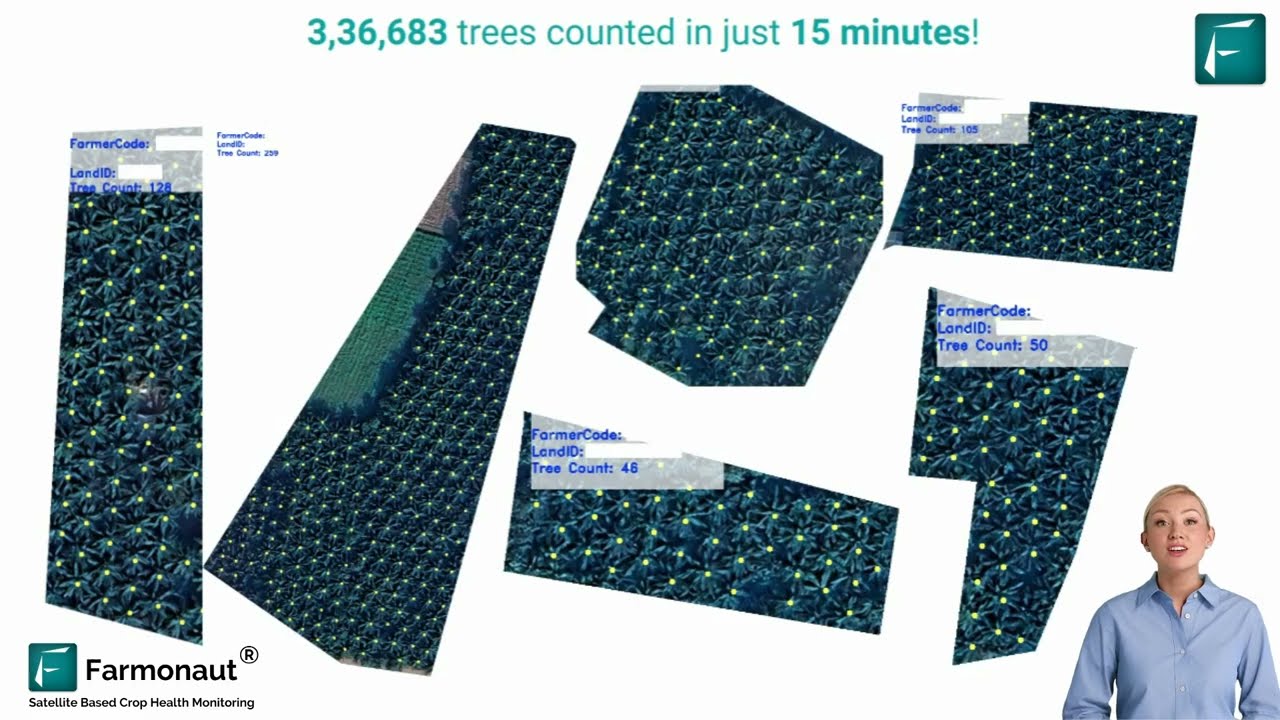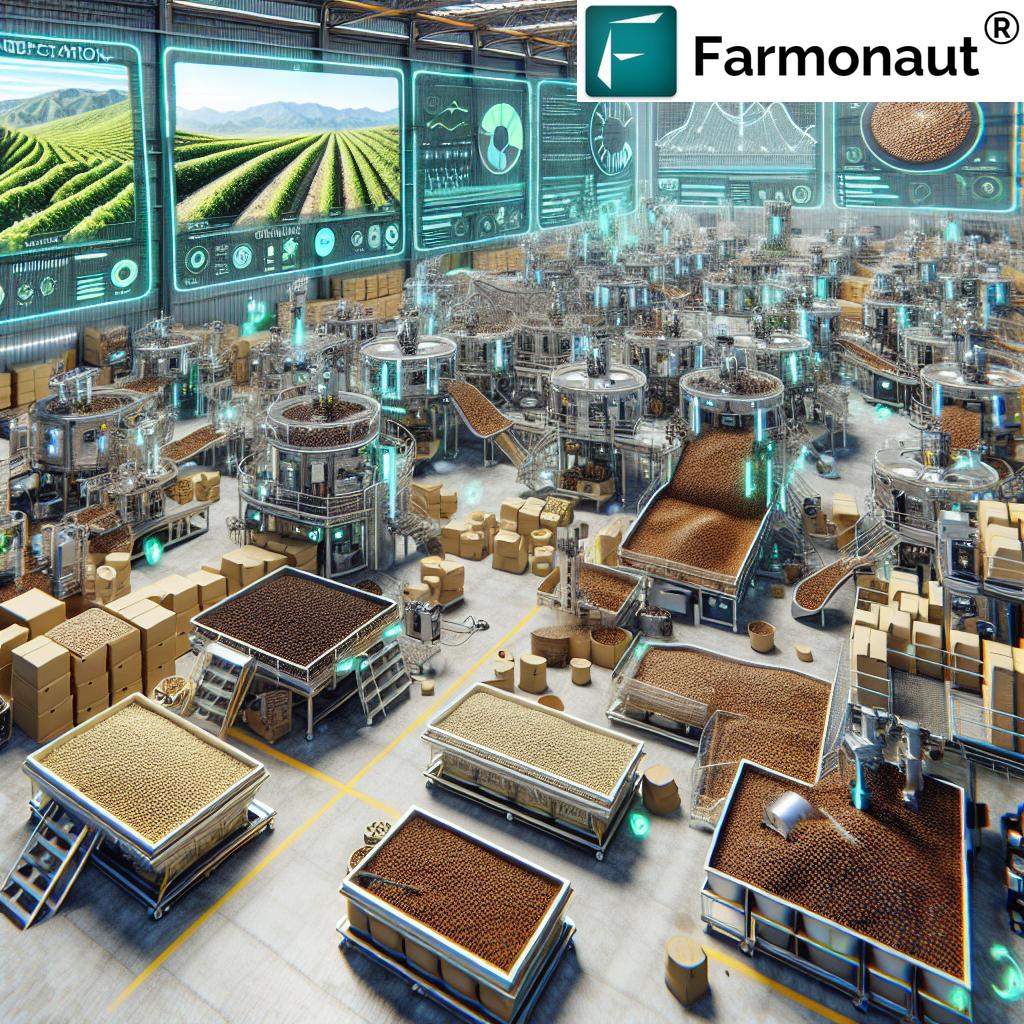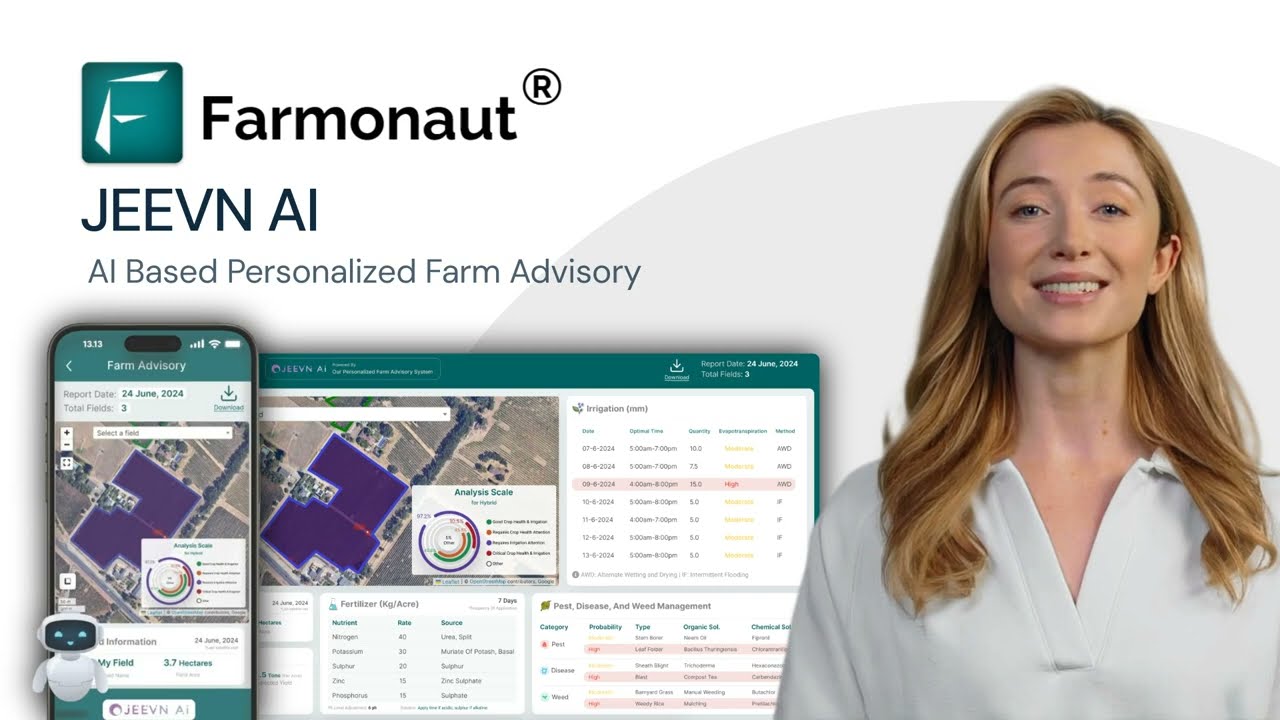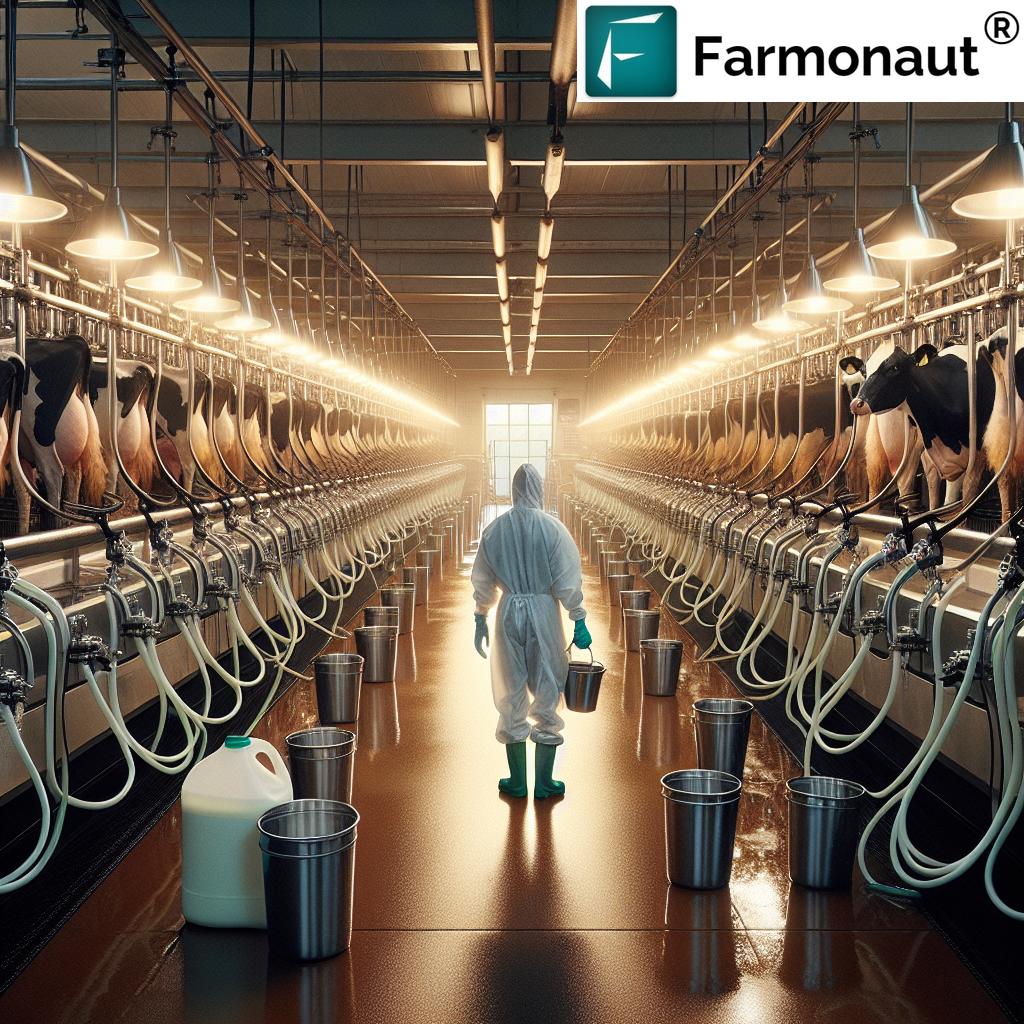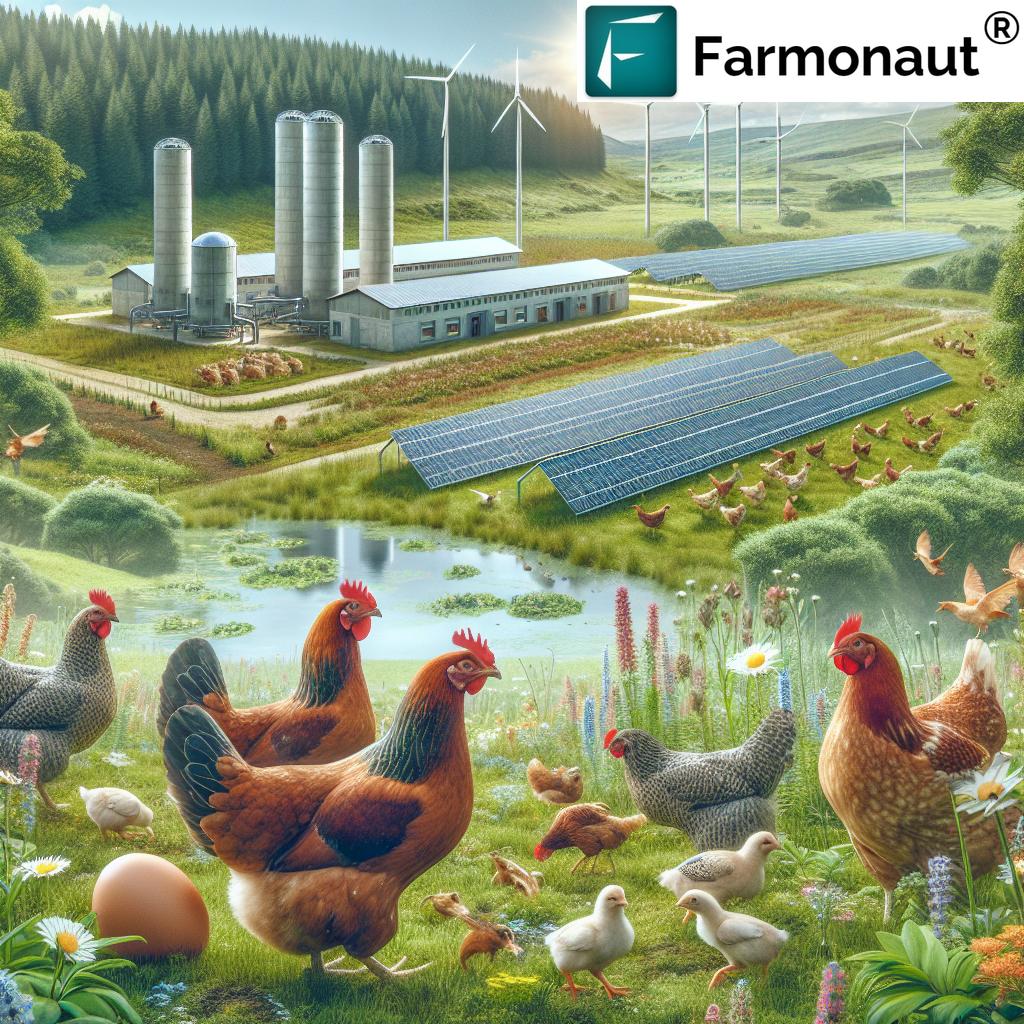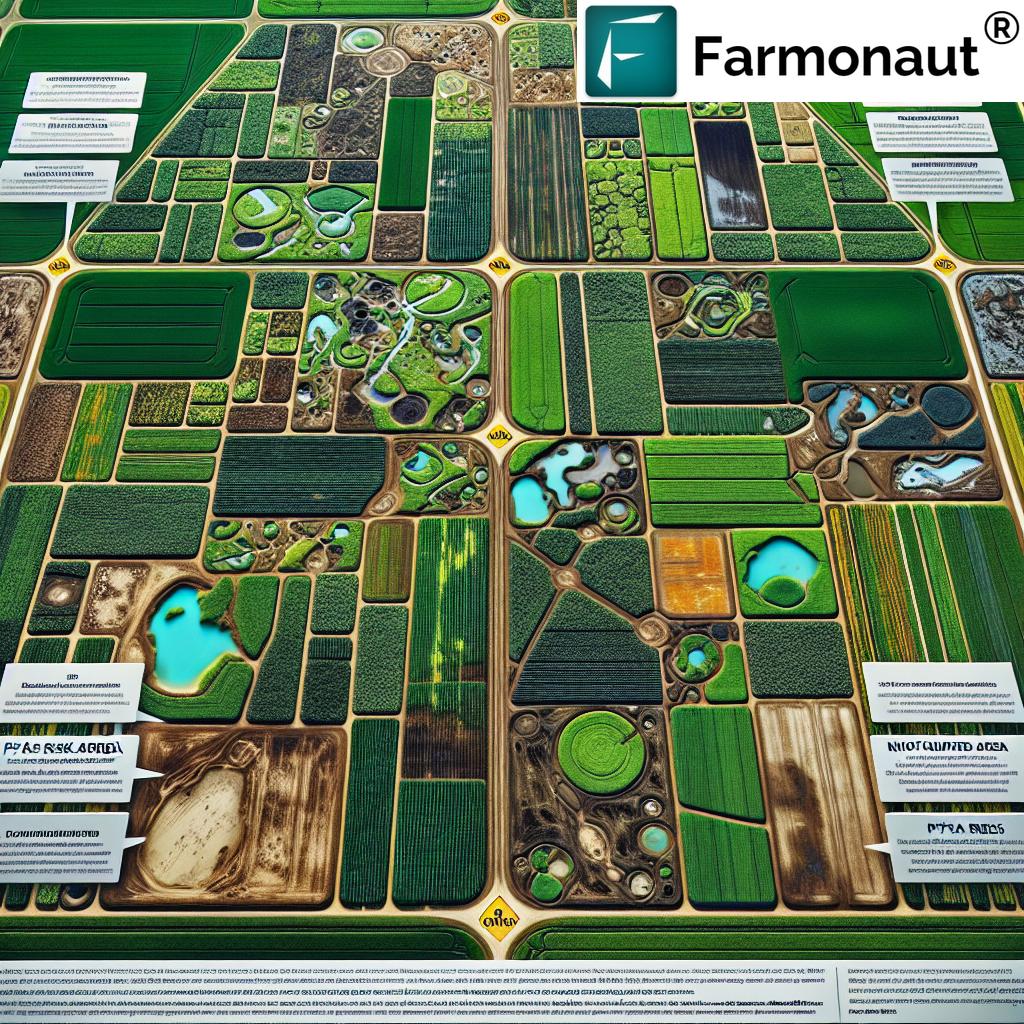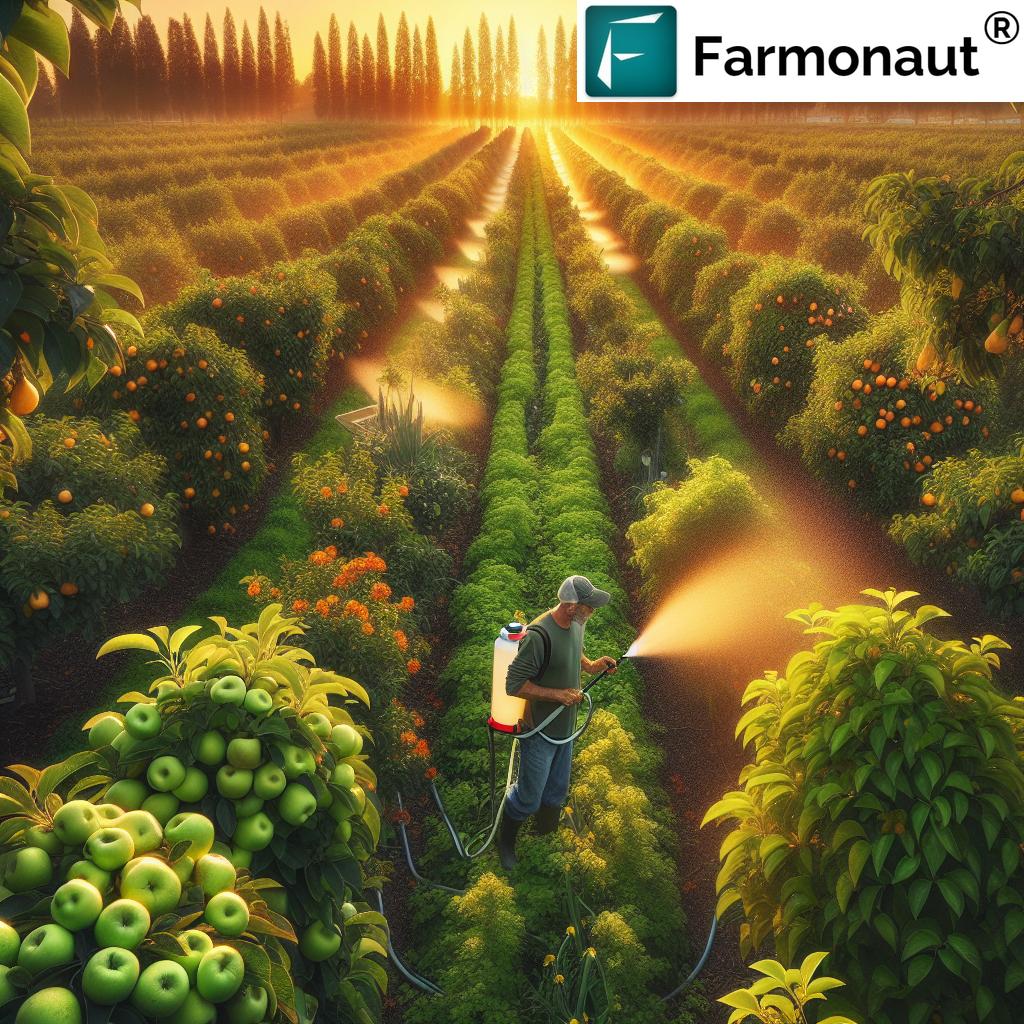Coffee Supply Chain Innovation: 7 Sustainable Trends Transforming the Industry
“Over 70% of coffee farmers are adopting climate-resilient crops to combat changing weather patterns and secure future yields.”
Table of Contents
- Introduction: The Evolution of the Coffee Supply Chain
- 1. Precision Agriculture Techniques: Smart Farming for Sustainable Coffee
- 2. Climate-Resilient Coffee Varieties: Adapting to Climate Change
- 3. Regenerative Agriculture Coffee: Restoring Soil Health and Productivity
- 4. Digital Traceability in Coffee: Blockchain and Transparency
- 5. Vertical Integration & Corporate Sustainability Initiatives
- 6. Policy Changes & Deforestation Regulation in the Coffee Chain
- 7. Waste Reduction and Circular Solutions in Coffee Supply Chains
- Innovative Technologies for Coffee Yield Improvement & Sustainability
- Comparison Table of Sustainable Coffee Supply Chain Trends
- Coffee Sustainability Challenges & The Future Outlook
- Farmonaut: Accelerating Coffee Supply Chain Transparency and Sustainability
- FAQ: Sustainable Coffee Supply Chain Innovation
Introduction: The Evolution of the Coffee Supply Chain
The coffee supply chain is undergoing a remarkable transformation as sustainability, technological innovations, and climate resilience reshape one of the world’s most beloved beverages. Coffee is cultivated by millions of farmers in over 70 countries, and global demand continues to rise. Yet this growth faces major challenges: climate change, environmental degradation, market price fluctuations, and consumer demands for ethical, traceable products.
Today, sustainable coffee farming is at the core of industry innovation. Farms, processors, and brands are adopting eco-friendly practices, new technologies, and improved systems — from AI-powered precision agriculture to digital traceability platforms and regenerative approaches. These advancements not only boost yields, soil health, and quality but also build more resilient and transparent coffee chains that benefit both people and the planet.
In this comprehensive guide, we explore the seven most impactful trends driving coffee supply chain innovation worldwide. We reveal how smart farming, digital traceability, cooperative models, new regulations, and circular solutions are reshaping the future of coffee production, supply, and consumption.
Why Coffee Supply Chain Sustainability Matters Now More Than Ever
- Growing Environmental Threats — Climate change is disturbing coffee yields and quality, while deforestation and unsustainable farming devastate biodiversity and soil.
- Shifting Market & Consumer Demands — Today’s buyers want transparency, ethical sourcing, and environmental stewardship from brands.
- Global Policy & Trade Impacts — New regulations, like the EU’s Deforestation Regulation (EUDR), demand compliance across the entire coffee supply chain to access international markets.
- Livelihoods at Stake — Millions of smallholder coffee farmers’ incomes and futures depend on building resilient, high-yield, and sustainable supply systems.
1. Precision Agriculture Techniques: Smart Farming for Sustainable Coffee
“Sustainable coffee farming practices can increase yields by up to 30% while reducing environmental impact.”
Precision agriculture techniques — using advanced data, sensors, and digital tools — are transforming coffee cultivation, especially in countries like Brazil, the world’s largest coffee producer. These systems enable farmers to manage resources much more efficiently, optimize input use, and precisely respond to field variability.
- Smart Irrigation Systems: Using soil moisture sensors and weather-based controllers, farmers optimize water usage — critical for maximizing yields in drought-prone regions while conserving resources.
- Drones with Multispectral Cameras: These high-tech drones monitor crop health, detect diseases, and identify field variability, enabling targeted interventions that increase productivity and reduce waste.
- AI-Driven Pest and Disease Management: Artificial intelligence systems provide customized advice on pest treatment, fertilizer application, and irrigation, resulting in higher yields and reduced input waste.
- Digital Crop Monitoring: Satellite and mobile data provide ongoing updates on plant health, soil conditions, and environmental risks, enhancing decision-making for every stage of coffee farming.
For example, in Brazil, these precision farming methods are allowing coffee producers to boost yields, improve soil health, and minimize their environmental footprint.
2. Climate-Resilient Coffee Varieties: Adapting to Climate Change and Coffee Farming
Climate change and coffee are now inseparable topics. Rising temperatures, unpredictable rainfall, and increased pest pressure threaten coffee quality and yields globally. Coffee farmers, researchers, and institutions are innovating to create climate-resilient varieties and cultivation systems adapted to changing conditions.
- Agroforestry Systems: In regions like Colombia, farmers are implementing climate-smart practices by cultivating coffee under native tree canopies, creating shelter from temperature extremes and conserving biodiversity.
- Biodiversity Conservation: Agroforestry enriches soils, mitigates yield fluctuations, and supports climate resilience by stabilizing microclimates.
- Disease-Resistant and Heat-Tolerant Varieties: Organizations like Colombia’s National Coffee Research Centre (Cenicafé) have developed varieties that produce high-quality beans, even as climatic conditions shift.
This approach is being replicated worldwide, from African cooperatives to Central American plantations — ensuring a more resilient future and robust coffee supply chain despite climate change.
3. Regenerative Agriculture Coffee: Restoring Soil Health and Productivity
Regenerative agriculture coffee practices are rapidly gaining traction as producers recognize the need to restore soil health, sequester carbon, and build long-term fertility. Unlike conventional farming, which often depletes natural resources, regenerative methods rejuvenate soils and ecosystems, delivering both agronomic and environmental benefits.
- No-Till Farming: Minimizes soil disturbance, preventing erosion, maintaining structure, and increasing water retention.
- Cover Cropping: Planting cover crops between coffee plants helps conserve moisture, boost organic matter, and reduce weed and pest pressure.
- Organic Fertilizers: Innovative methods like using organic fertilizers produced by black soldier fly larvae drastically reduce dependence on synthetic inputs and greenhouse gas emissions.
- Holistic Farm Management: Training programs and extension services, as promoted by companies like Sucafina, are equipping farmers to use sustainable, locally-adapted techniques that improve yields and boost resilience.
The adoption of regenerative agriculture in coffee farming not only enhances soil health but enhances yield improvement and moves the supply chain closer to a carbon-neutral future.
4. Digital Traceability in Coffee: Blockchain and Supply Chain Transparency
The need for coffee supply chain transparency and traceability is surging, driven by consumer awareness, regulations, and the risk of fraud or mislabeling. Digital traceability in coffee is transforming the industry, using blockchain and mobile technologies to verify the path of each batch of beans from farm to cup.
- Blockchain Systems: Create immutable, tamper-proof records at every supply chain step, from harvesting to shipping, roasting, and final sale. This ensures audits are credible and traceable, building trust across coffee markets.
- Mobile and Web Apps for Farmers: Farmers use digital platforms to record farm practices, receive weather updates, and interact with buyers or cooperatives — reducing information asymmetry and empowering informed decision-making.
- Consumer-Facing Transparency: Buyers and roasters can scan QR codes and instantly access origin, sustainability certifications, and practices used on the coffee farm, adding value to ethically produced beans.
These innovations support compliance with growing regulatory demands (such as the EUDR), foster ethical practices, and protect the integrity of global coffee markets.
You can learn more about implementing digital traceability in coffee and how it improves transparency in agricultural supply chains here.
5. Vertical Integration & Corporate Sustainability Initiatives
Major actors in the coffee industry, like Starbucks, are moving towards vertical integration to secure the supply of high-quality, sustainably-grown beans and directly implement best practices. This approach gives companies greater oversight of everything from cultivation to roasting, packaging, and selling.
- Farm Ownership or Direct Partnerships: Companies invest in coffee farms (for example, in Guatemala or Costa Rica), allowing direct experimentation with eco-friendly farming and improvements in quality control.
- Supply Chain Security: Vertical integration buffers companies and consumers from market price fluctuations and logistical disruptions.
- Faster Innovation Adoption: Control over sourcing allows companies to faster deploy regenerative, organic, or technology-driven practices, and quickly share learnings with partner producers.
This model accelerates the adoption of sustainable coffee farming and signals to the market that environmental and social responsibility are now critical competitive factors in the coffee industry.
Our web and mobile app enable coffee farmers and businesses to monitor crop health, analyze soil moisture, optimize irrigation, and enhance coffee yield improvement with ease.
Explore the Farmonaut App now.
6. Policy Changes & Deforestation Regulation in the Coffee Chain
Strong policy and regulatory developments are emerging as global priorities, reshaping how coffee is produced, traded, and consumed. The European Union’s Deforestation Regulation (EUDR) is a game-changer — requiring proof that imported coffee and other products are not linked to deforestation after December 30, 2024.
- Compliance Requirements: Coffee exporters to Europe must trace the journey of beans and guarantee they are not sourced from deforested areas — ensuring true supply chain sustainability.
- Smallholder Challenges: Small farmers may lack the resources to implement robust compliance systems, making support from larger companies and digital traceability solutions essential.
- Market Access Implications: These regulations reward sustainable and transparent producers, while non-compliant chains risk losing access to key markets.
This trend is accelerating the adoption of traceability platforms, satellite-based compliance tools, and regenerative practices across global coffee-producing regions.
Integrate Satellite-Based Coffee Supply Chain Monitoring:
If your agri-business or cooperative needs API access to real-time crop and soil data for compliance or yield optimization, visit Farmonaut API or browse our Developer Documentation.
7. Waste Reduction and Circular Solutions in Coffee Supply Chains
Minimizing waste and improving resource efficiency are crucial for resilient and sustainable coffee supply chains. Innovative approaches target the full coffee lifecycle, from farm to cup to disposal.
- Processing Waste Reuse: Coffee cherry pulp and husks are being converted into organic fertilizers or renewable energy sources, reducing environmental impact.
- Eco-Friendly Packaging: Brands are increasingly switching to recyclable, compostable, or biodegradable packaging to curb waste at the consumer end.
- Circular Economy Initiatives: Coffee shops and roasters are upcycling used grounds into products like soil amendments, cosmetics, or mushroom substrates.
These circular solutions not only improve environmental sustainability throughout the coffee supply chain but open new revenue streams and business models.
“Sustainable coffee farming practices can increase yields by up to 30% while reducing environmental impact.”
Innovative Technologies for Coffee Yield Improvement & Sustainability
Digital technologies, precision farming, and AI-driven advisory systems are revolutionizing how coffee farmers plan, monitor, and manage their operations for optimum results — with a direct effect on yield, input efficiency, and economic returns.
- Satellite Imaging & Multispectral Analysis: By monitoring plant health, soil conditions, water stress, and potential yield gaps at scale, these tools enable targeted intervention and resource saving.
-
Fleet & Resource Management: Modern systems allow for real-time tracking of coffee-carrying vehicles and equipment, cutting operational costs and improving supply chain predictability.
Read more about our Fleet Management Solution. - AI-Based Crop Advisory: Next-generation AI tools such as the Jeevn AI system deliver personalized, actionable insights on crop management, pest control, and optimal input application to maximize productivity while avoiding excess.
These advancements make coffee yield improvement measurable and practical, while also helping farmers adapt to climate change, input price fluctuations, and growing environmental expectations.
Comparison Table of Sustainable Coffee Supply Chain Trends
| Trend Name | Description | Key Benefits | Example Technologies/Practices | Estimated Impact |
|---|---|---|---|---|
| Precision Farming | Use of data, sensors, and AI for targeted resource management in coffee cultivation. | Improves yields, reduces water/fertilizer use, lowers cost, boosts efficiency. | Soil sensors, AI advisory, drones, satellite imagery | Up to 25% increased yield, 30% reduction in water use |
| Regenerative Agriculture | Holistic practices to restore soil health, boost biodiversity, and sequester carbon. | Increases long-term fertility, resilience; mitigates climate change. | No-till, cover cropping, organic fertlizers | 30% lower soil erosion; +15% soil organic matter |
| Climate-Resilient Varieties | Developing and planting disease-resistant, drought- and heat-tolerant beans. | Maintains yields and quality despite climatic shifts. | Agroforestry, genetic breeding, shade-grown systems | Yield stability up by 10-30% under adverse conditions |
| Eco-Friendly Packaging | Use of recyclable, compostable, or biodegradable packaging materials for coffee. | Reduces landfill waste, decreases carbon footprint, appeals to green consumers. | Bioplastics, recycled paper bags, compostable pods | Packaging waste reduced by 35-60% |
| Blockchain for Traceability | Digital records from farm to cup to ensure transparent, auditable supply chains. | Prevents fraud, supports compliance, builds consumer trust. | Blockchain, mobile traceability apps | Full traceability; regulatory compliance |
| Renewable Energy Use | Switch to solar, hydropower, and energy-efficient processing in the supply chain. | Reduces emissions, lowers energy costs, supports certification. | Solar panels, biomass. efficient dryers | Emissions slashed by 20-50% |
| Waste Reduction & Circular Solutions | Upcycling by-products, composting, bioenergy generation, repurposing grounds. | Less landfill, new revenue, ecosystem services. | Composting, by-product upcycling, biogas | Waste cut by up to 60% |
Coffee Sustainability Challenges & The Future Outlook
Despite remarkable progress, the global coffee supply chain faces ongoing challenges:
- Climate change continues to impact yields, quality, and suitable growing regions — requiring continual adaptation and research into resilient systems.
- Labor shortages and aging farmer populations put future productivity and innovation at risk.
- Market volatility and complex logistics make income unpredictable for millions of smallholder farmers.
- Deforestation regulation and new compliance standards present challenges, especially for under-resourced producers.
The path forward demands investments in research, education, inclusive technology solutions, and support for smallholder farmers. Collaboration among growers, corporations, technology platforms, policymakers, and consumers is essential to build a resilient, sustainable coffee supply chain.
Farmonaut: Accelerating Coffee Supply Chain Transparency and Sustainability
We at Farmonaut are committed to empowering coffee industry stakeholders — individual farmers, cooperatives, agribusinesses, corporate buyers, and governments — with advanced technology and actionable data.
- Satellite Imaging & Multispectral Data: Monitor crop and soil health, optimize irrigation, and target interventions for enhanced sustainability and yield.
- Jeevn AI Advisory: Receive real-time, customized farm management recommendations based on weather and field conditions for precision agriculture.
- Blockchain-Based Traceability: Enable transparent, auditable records of coffee supply chains to comply with regulations and build consumer trust.
Explore our product traceability solutions. - Carbon Footprinting: Accurately measure and reduce environmental impact with real-time carbon tracking.
See our Carbon Footprinting Tool. - Fleet Management: Efficiently manage logistics and farm fleets with location-based monitoring.
Discover Fleet Management features.
We offer flexible subscriptions for all scales of operation, making precision agriculture techniques and digital supply chain tools accessible and cost-effective.
Start your sustainable coffee journey now:
FAQ: Sustainable Coffee Supply Chain Innovation
What is the coffee supply chain, and why is innovation important?
The coffee supply chain refers to all steps in bringing coffee from seed to cup, including farming, processing, marketing, distribution, and retail. Innovation is crucial for meeting climate, quality, and market demands while ensuring sustainability, transparency, and resilience for farmers and supply partners.
How do precision agriculture techniques benefit coffee producers?
Precision agriculture empowers producers to use exact amounts of water, fertilizers, and crop protection, lowering costs and boosting yields. Technologies like sensors, drones, and AI advisory systems inform decisions that optimize resource use and reduce environmental impact.
What is regenerative agriculture in coffee?
Regenerative agriculture refers to holistic practices that restore soil health, boost biodiversity, and increase the farm’s ability to sequester carbon. In coffee, this includes no-till farming, cover cropping, organic fertilizers, and agroforestry systems — improving yields while enhancing climate resilience.
Why is digital traceability important in the coffee industry?
Digital traceability enables full transparency from farm to cup, which is now required by regulations (like the EUDR) and demanded by conscious consumers. Blockchain and mobile applications verify product origins and ensure compliance, building trust in sustainable coffee chains.
What is the impact of climate change on coffee production?
Climate change threatens suitable coffee-growing areas, increases susceptibility to diseases and pests, and disrupts yields. Developing climate-resilient coffee varieties, adopting adaptive farming systems, and investing in research are essential to sustain global coffee supply.
How does Farmonaut support coffee supply chain innovation?
We at Farmonaut offer advanced, affordable satellite-based farm monitoring, AI advisory, blockchain-based traceability, and resource management solutions. These empower coffee farmers, cooperatives, and businesses to make data-driven decisions for higher yields, environmental sustainability, and transparent, resilient supply chains.
Conclusion: Reshaping Coffee’s Future with Sustainability & Innovation
The coffee supply chain is at a turning point. Technological innovations, climate-resilient strategies, regenerative practices, transparent digital systems, and robust policies are setting the stage for a more sustainable, efficient, and inclusive coffee industry worldwide. As consumers, companies, and farmers work together, the next chapter of coffee will balance profitability with planet-friendly stewardship and social responsibility — ensuring the joy of coffee for generations to come.




